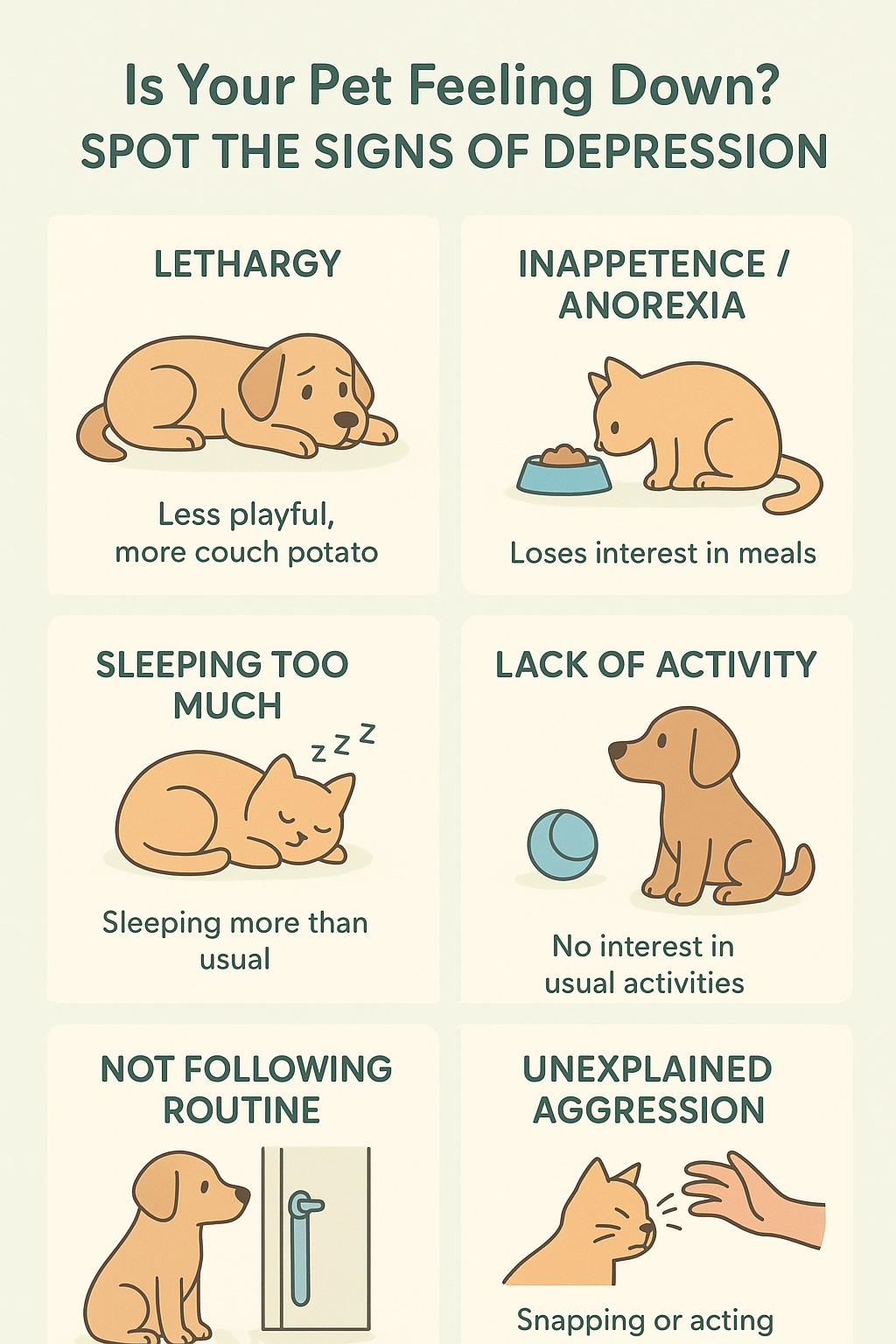Pets are a source of unbridled joy. The glimpse of wagging tail, goofy smiles and affectionate sniffs can instantly bring a smile to your face, even on the gloomiest days. Wherever you go, your furry friend follows, whether at midnight as you take a trip to the washroom, yawning or waiting by the door as you leave for work. Sometimes a pet can act as your shadow, following you everywhere. But it begins to get alarming when your bubbly pet retreats and suddenly stops acting like itself.
 Your pets, too, can be depressed, showcasing behaviour indicative of low mood. (Picture credit: Freepik)
Your pets, too, can be depressed, showcasing behaviour indicative of low mood. (Picture credit: Freepik)
ALSO READ: Think Omega-3s are just for you? Your dog needs it too: Vet shares top nutrients for growing pets
Can they get depressed? HT Lifestyle reached out to Dr Mugdha Rakshit, veterinary specialist, pain medicine and chronic ailments, Zumigo – a pet healthcare startup. She confirmed that yes, pets too can be depressed. They may show behavioural changes that give a glimpse into their depressive emotional well-being.
Common signs of depression in pets  These are the signs of pet depression.(Picture credit: Made with Chat GPT)
These are the signs of pet depression.(Picture credit: Made with Chat GPT)
When they are depressed, their behaviour changes. A lack of enthusiasm may seem like a brief phase, but when it persists, it can be a sign of poor emotional well-being.
Dr Rakshit shared these signs of depression:
LethargyInappetenceAnorexiaSleeping too muchLack of activityNot wanting to follow their routine, like going for walks or nudging their human to playExhibiting unexplained aggression
Sometimes, the behavioural changes, as the vet noted, may coincide with other symptoms of illness like fever, loose motion and vomiting.
What to do when you notice depressive signs?
Especially if your pet is showing physical signs of illness along with major behavioural changes, you need to head over to a vet.
Dr Rakshit recommended a few tests. “If it has been 72 hours, a basic blood panel is run to ensure there isn’t an illness causing the symptoms.”
She explained that diseases like tick fever may trigger depressive signs. The vet also told us that nutritional deficiencies, particularly in Vitamin B12 and D3, due to a lack of a protein-rich diet, which is essential for canivores, can cause severe depression and make pets more susceptible to illness. All these health problems can be caught when blood tests are done.
What are the signs of recovery? The vet shared, “Signs of recovery from the disease/deficiency are that they start feeling more like themselves, catching up on their routine, food intake, activity and playfulness.”
Finding the root problem of depression
Depression in pets can also happen because of changes in their environment or routine. The vet revealed that loss of a family member or another pet, moving homes, altered feeding or walk schedules, or even unintentional punishment or abuse may negatively impact their emotional well-being, leading to major behavioural changes. Animals, as the vet highlighted, are very sentient. They pick up the cues around them. This means, if you are depressed, Dr Rakshit reminded, your pet could be depressed as well.
Dr Rakshit suggested setting a routine: “Timely walks, meal times, dedicated play time, regular grooming, bathing, or simply cuddling with them while watching a movie may sound like little details, but these routine activities are your time with them and that makes them happy, loved and wanted.”
Note to readers: This article is for informational purposes only and not a substitute for professional medical advice. Always seek the advice of your doctor with any questions about a medical condition.

